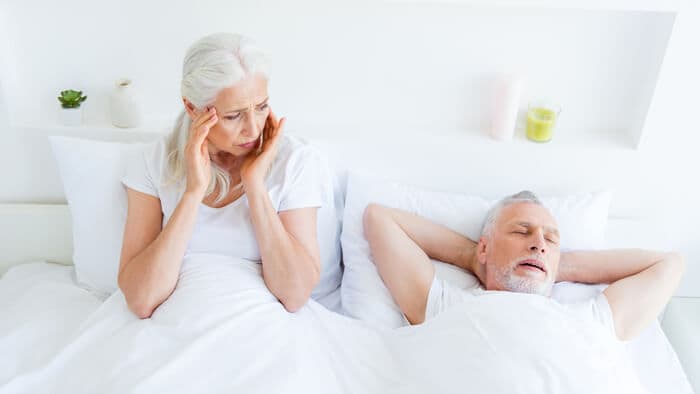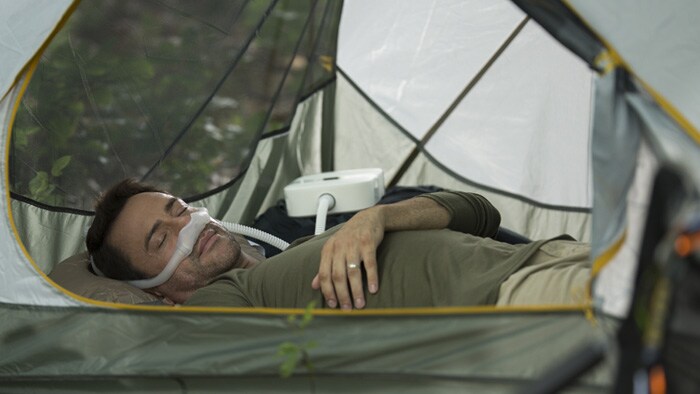10 Ways Sleep Apnea Treatment Can Save Your Life
Sleep apnea is far more serious than you may realize. It's not just a simple case of snoring loudly and not getting enough sleep. In some cases, sleep apnea can be a matter of life or death. Here's a look at the potentially fatal conditions that can be caused by sleep apnea. If you think you might have sleep apnea, you should see a doctor for a diagnosis right away. Obstructive sleep apnea (OSA) treatment can save your life. Sleep apnea can cause you to briefly stop breathing while you're asleep because the muscles in your throat are relaxing and blocking your airway. Signs that you might need to see a doctor include loud snoring, headaches, excessive sleepiness during the day, and waking up choking or gasping at night. If you have apnea, you're at risk for these 10 conditions.
1. High Blood Pressure
High blood pressure is one of the top risks of sleep apnea, and it can lead to heart disease, strokes, and heart attacks. About 50 to 70 percent of people with sleep apnea have high blood pressure. If your blood pressure is tough to treat, you might want to get checked for sleep apnea.
2. Strokes
Stroke is a very real risk that accompanies sleep apnea. In fact, the correlation could be as strong as the correlation between smoking and strokes. This is likely because blood vessels in the brain dilate when oxygen levels fall.
3. Speeding Up Your Heart Rate
Sleep apnea does a number to your cardiovascular system. It increases your heart rate (which is the number of beats per minute) in addition to increasing your blood pressure. When you stop breathing at night, your heart rate will temporarily drop and then quickly speed up as you wake up. In fact, sleep apnea can do more than just speed up your heart rate. It might contribute to atrial fibrillation, which is an abnormal heart rhythm.
4. Stopping Breathing at Night
When you have sleep apnea, one of the classic symptoms is having multiple episodes at night where you stop breathing. This by itself is dangerous, as it can cause low blood-oxygen levels and higher carbon dioxide levels in the blood stream.
5. Heart Attack
Because sleep apnea elevates blood pressure and speeds up the heart rate, it increases your chance of having a heart attack . This is what happened to Carrie Fisher. She died at the age of 60, four days after having a heart attack during a flight. Her assistant said she had several apnea events during the flight, which was normal for her. Ultimately, the coroner concluded that her cause of death was "sleep apnea with other conditions: atherosclerotic heart disease, drug use."
6. Obesity
Although obesity can cause sleep apnea, you're also at an increased risk of being obese if you have sleep apnea. Sleep apnea increases the risk of obesity because sleep deprivation can mess up the hormones that affect your appetite. In addition, being sleepy can make you less likely to exercise or more likely to overeat.
7. Diabetes
Sleep apnea can make diabetes more difficult to manage. It can lead to increased insulin resistance from the increase of carbon dioxide in your blood. And the obesity risk also increases your risk of developing Type II diabetes. In fact, one study found that 86 percent of people with Type II diabetes also have OSA.
8. Sudden Death
Scary as it may sound, sudden death is a real "side effect" of sleep apnea. People with severe sleep apnea have a three times greater risk of dying in general than people without apnea. But it's particularly likely to raise your risk of sudden death from cardiac arrest. Some researchers believe this is because sleep apnea can cause an abnormal heart rhythm.
9. Drowsiness Causing Accidents
A hallmark symptom of sleep apnea is feeling very drowsy during the day. This can lead to workplace accidents and car accidents because you're just too tired to be alert. One study found that people with sleep apnea were 2.5 times more likely to be the driver of a vehicle accident.
10. Substance Abuse Makes Everything Worse
Substance abuse worsens all the above odds. Some types of substances can even cause sleep apnea. Cocaine, for example, can damage the nasal passages, leading to tissues' collapsing while you sleep. Opiates can depress the respiratory system and affect the signals sent to your brain, causing apnea-like symptoms in some. Proper sleep apnea treatment can drastically reduce your risk of health complications. You might need a CPAP device at night, an oral device, or even positional therapy that compels you to sleep on your side instead of your back. If you think you might have sleep apnea, make an appointment with your doctor right away.


